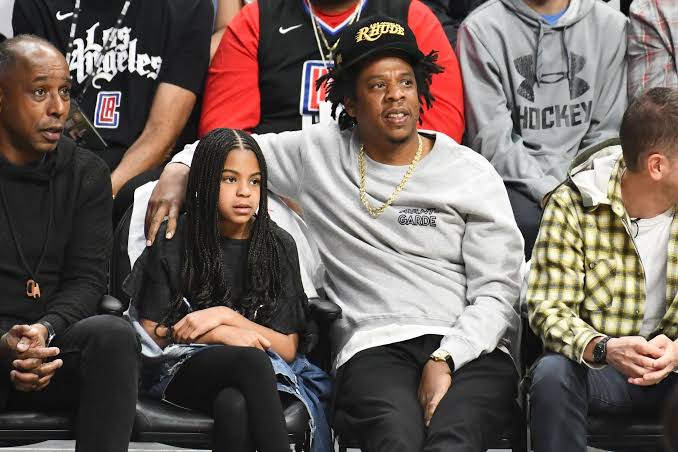Stand-up comedy can be tough, and sometimes comedians push the envelope to make audiences laugh. But when does it go too far? That's the question being asked after recent reports that Marlon Wayans has been bullying fellow comedian Chris Rock on stage.
The tension between the two comedians has been brewing for years. Marlon has made several jokes at Chris's expense during his stand-up comedy shows. While some of these jokes were harmless, others were quite mean-spirited and seemed to be more like bullying than anything else.
This has led to some tension between the two comedians. But the jokes between the two brothers are not uncommon anymore because, according to Marlon, Chris used to bully him too. Not only on stage but also on premieres and other important occasions.
Reminiscing about an incident like this, Marlon told us how he lost his could-be wife just because of Chris Rock. "Who is it Chris Rock Jerry curl but didn't have enough money for all the grease, so it's like dry Jerry curl but he had a shag so the grease would drip onto his shoulders and he was like three different colored black." Marlon took his revenge by portraying Chris Rock's charismatic profile like this, "Oprah crisp the Chris still got the girl in left merrily and heartbroken, but what could have been my wife. I was so sad, y'all, tear rolled up in my eye, one rolled."
If you go back in the years, Chris Rock was everywhere, maybe that's why Marlon tried to bully him on his stage comedy by using mean jokes and past memories of them. Look how Marlon recalled the incident when a role was snatched by Chris Rock, and he wasn't a bit happy about it. "We're gonna give this world to Chris Rock.
Chris Rock, he says he's an up-and-coming comedian; he's really funny, and I think this role will be good for him." Marlon said, "I don't know. There are nine Chris Rocks out there enjoying his stardom, and Wayans was left crying. Cried that day, man. I did it not to be a hater, but I just felt like that was my opportunity."
Fast forward to the present, and it's been close to a year since the Oscars scandal occurred. Namely, Will Smith slapping Chris Rock On Stage after joking about his wife's appearance. With all of the discourse still going about this controversial moment, there are also jokes about the scandal from comedians like Marlon Wayans and Chris Rock himself.
Days before Rock's Netflix special drops, Marlon Wayans has an HBO Max comedy special coming up called "God must love me," where he uses his talent at impressions and physical comedy to address the Will Smith slap that's now synonymous with the 94th Academy Awards. "I don't know what happened to Will, looks like he was enjoying the joke, right? He wouldn't crack the joke; Will was laughing that phony ass left, okay now, yeah, like you, and he went yeah, that ain't funny," Marlon jokes.
But where do we draw the line between comedic expression and bullying? In today's climate, where cancel culture is prevalent, comedians need to be more aware of the impact of their jokes on individuals and groups. Some comedians may argue that comedy is an art form, and therefore they have the right to express themselves freely. But the question remains: at what cost?
It's essential to remember that while comedians have the right to free expression, so do their audiences. And when jokes cross the line into bullying, audiences have the right to call out the behavior and hold the comedians accountable.
It's also important for comedians to understand and respect the power of language. Comedy is often used as a tool for social commentary, and it can be incredibly effective at highlighting issues and sparking conversations. However, comedy can also be used to perpetuate harmful stereotypes and reinforce prejudices.
As a comedian, it's important to be aware of the impact your words can have on others. Jokes that rely on harmful stereotypes or belittle marginalized communities can be hurtful and damaging. In some cases, they can even contribute to a culture of hate and discrimination.
On the other hand, comedy can also be a powerful tool for promoting understanding and empathy. When used responsibly, comedy can help break down barriers and foster conversations about difficult topics. It can be a way to bring people together and promote a more inclusive and accepting society.
To use comedy in a responsible and effective way, comedians need to be thoughtful about their material and the impact it might have. This means doing research, talking to people from different communities, and being open to feedback and criticism. It also means being willing to take responsibility for any harm that might be caused by their words, and making an effort to learn from mistakes and do better in the future.
Ultimately, whether you're a comedian, a writer, or just someone who enjoys language, it's important to recognize the power and impact of words. By using language responsibly and thoughtfully, we can help create a more inclusive and compassionate world.


.jpeg)
.jpeg)
.jpeg)


.jpeg)

0 Comments